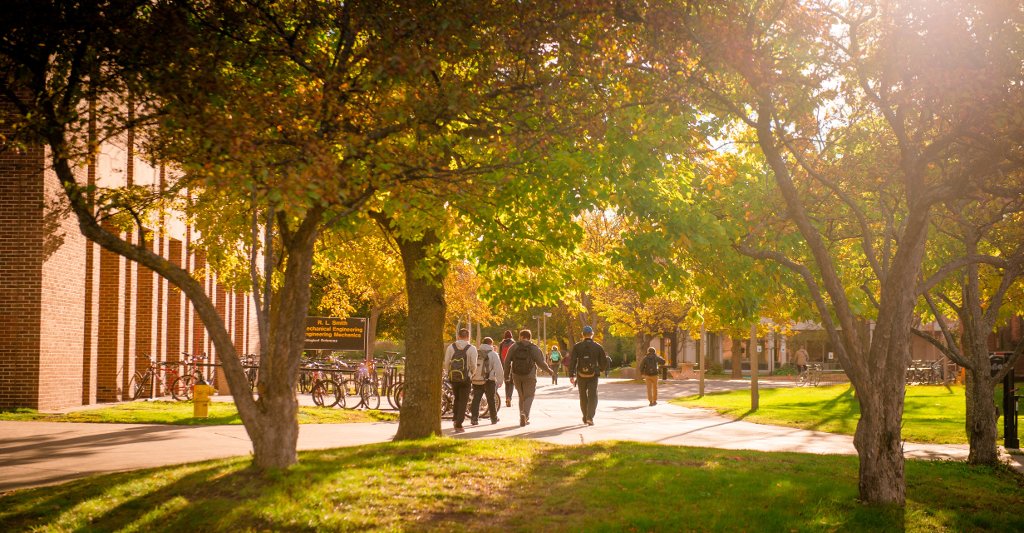Michigan Tech Shares Funding for A New Biofuel Research Center
Michigan Technological University and Michigan State University (MSU) have received more than $1.4 million from the US Department of Energy through the Michigan Economic Development Corporation (MEDC), to establish a new forest-based biofuel research center. The center will focus on research to help make cellulosic biofuels a commercial reality.
The new Forestry Biofuel Statewide Collaboration Center will be housed at MSU's Upper Peninsula Tree Improvement Center in Escanaba, one of 14 Michigan Agricultural Experiment Stations throughout Michigan. It is Michigan Tech's fourth major biofuel research center and the second in partnership with MSU.
"This important funding will help solidify the Michigan Tech-Michigan State University collaboration to help industry partners commercialize production of forest-based biofuels, bioenergy and bioproducts," said David R. Shonnard, Michigan Tech's lead researcher for the new center. "Our collective goals are to create profitable enterprises and increase jobs in Michigan, reduce emissions of global climate-changing gases and promote national energy independence."
Shonnard, who is deputy director of Michigan Tech's Sustainable Futures Institute, holds the Richard and Bonnie Robbins Chair of Sustainable Materials. He is also a lead researcher in a $2 million state-funded Center of Energy Excellence, another collaborative effort of Michigan Tech, MSU and Frontier Renewable Resources.
Research at the new Escanaba biofuel research center will build on the work of this Center of Energy Excellence, enabling the two universities to expand their scope to include the entire state, said Steve Pueppke, director of Michigan State's Office of Biobased Technologies and of the Michigan Agricultural Experiment Station in the Upper Peninsula.
Specific research projects will be identified in collaboration with industry partners, Shonnard explained. "In general, faculty and students from Michigan Tech and Michigan State will be developing solutions to a variety of barriers to commercialization of biofuels," he said. "They will inventory forest feedstock available in Michigan; develop a feedstock supply chain model; explore the economic and environmental implications of biofuel technology; continue university-based innovation in forest cultivation, harvesting and energy conversion processes; support technology transfer and develop sustainability guidelines."
Michigan Technological University is a leading public research university, conducting research, developing new technologies and preparing students to create the future for a prosperous and sustainable world. Michigan Tech offers more than 120 undergraduate and graduate degree programs in engineering, forestry and environmental sciences, computing, technology, business and economics, natural and physical sciences, arts, humanities and social sciences.
Michigan State University has been advancing knowledge and transforming lives through innovative teaching, research and outreach for more than 150 years. MSU is known internationally as a major public university with global research and extraordinary impact. Its 17 degree-granting colleges attract scholars worldwide who are interested in combining education with practical problem solving.
Michigan Technological University is an R1 public research university founded in 1885 in Houghton, and is home to nearly 7,500 students from more than 60 countries around the world. Consistently ranked among the best universities in the country for return on investment, Michigan's flagship technological university offers more than 185 undergraduate and graduate degree programs in science and technology, engineering, computing, forestry, business, health professions, humanities, mathematics, social sciences, and the arts. The rural campus is situated just miles from Lake Superior in Michigan's Upper Peninsula, offering year-round opportunities for outdoor adventure.




Comments